PH dialogue pushes for gender-responsive disaster risk reduction and management
Date:
Pasig City, Philippines — Promoting equitable community resilience requires addressing the high and unequal risk that women and girls face in relation to climate change and disaster impact in the Philippines. UN Women, in partnership with the International Federation of Red Cross and Red Crescent Societies, the UN Office for Disaster Risk Reduction and the Office of Civil Defense (OCD) are therefore advocating for a gender-responsive approach in disaster risk reduction and management (DRRM) through the development of the Philippines Gender-Inequality of Risk (GIR) Programme.
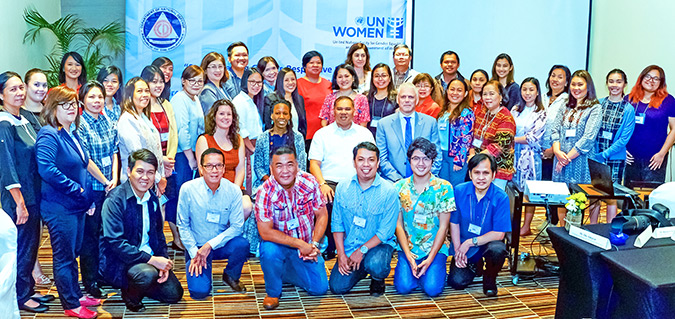
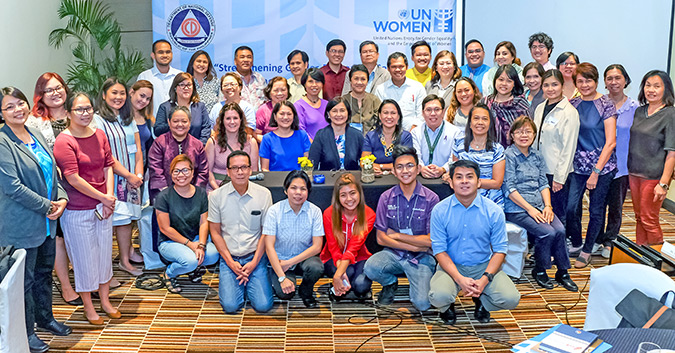
Data in the Asia-Pacific region show that disasters kill more women than men because of social and traditional norms that limit their ability to protect themselves and survive. Moreover, the Philippines is third among the countries at highest risk of being hit by a disaster based on the 2016 World Risk Index, which ranked 171 countries according to how exposed and vulnerable they are to natural hazards, including earthquakes, floods and storms.
The Philippines’ GIR Programme aims to enhance understanding of gender dimensions of disaster risk, particularly in terms of women’s exposure to hazards, vulnerability, and capacity. It also intends to make national and community risk governance gender-responsive, build resilience through investment in gender-responsive DRR, including preparedness and response and create meaningful participation of women in DRR and resilience building. It is part of the global and regional (Asia Pacific) programme on GiR being developed jointly by UN Women, IFRC and the UNISDR.
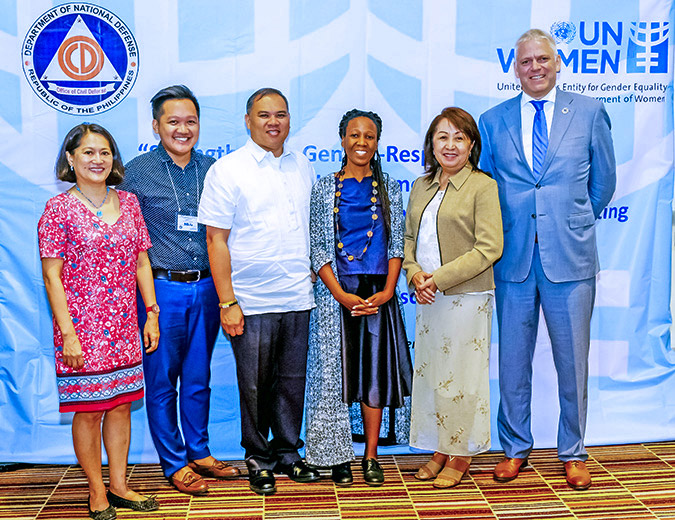
To ensure that the GIR meets the specific needs of Philippines, the partners, in close collaboration with the OCD, facilitated a consultation dialogue “Strengthening Gender-Responsive Sendai Framework Implementation: Addressing the GIR and Promoting Community Resilience in the Philippines” between 20th and 21st June 2017. The meeting was held to identify common challenges that Philippines is facing with regard to addressing gender inequality through DRRM but also to identify key priorities and good practices that should be addressed and promoted through the proposed GIR Programme, The event was also supported by the Philippine Commission on Women (PCW) and attended by gender focal points from various national government agencies, civil society organizations and non-government organizations from different parts of the country.
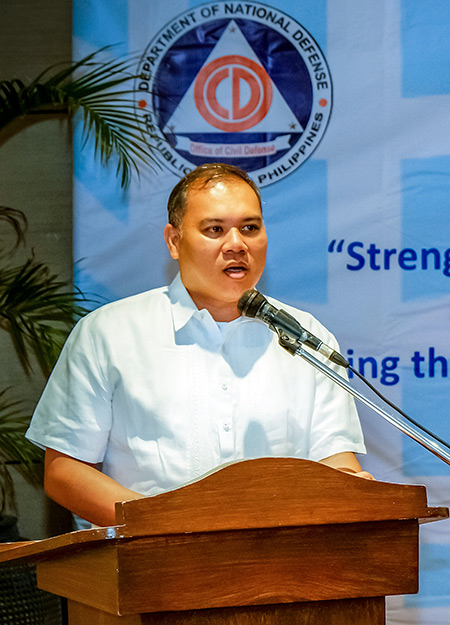
The OCD, through Director Rafaelito R. Alejandro IV, emphasized the importance of information exchange and sharing of best practices and strategies to gain common understanding and have a consensus on how the country can move forward in increasing the role of women in governance, politics and DRRM.
According to PCW Executive Director Emmeline Verzosa, although the Philippines has a substantial number of laws and policies on women’s rights, gender-based violence, and DRR, these are not effectively implemented on the ground and that the challenge on how to do it better still remains. “It requires a lot of convergence, of various government and non-government and the private sector working together,” she said.
Verzosa also underscored the significance of capacity building and the generation and utilization of sex disaggregated data to provide evidence for developing policies, programs and services that are rights- based, gender and culture sensitive.
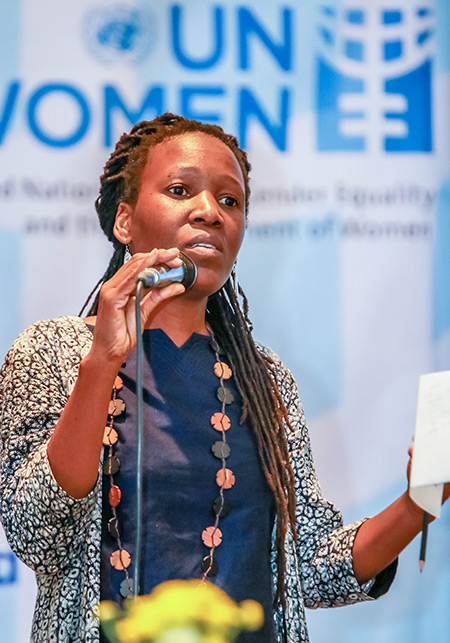
UN Women’s climate change and DRR specialist, Cecilia Aipira, pointed out that we should not be just focused on responding to disasters but we should also aim to build back better, including building back better of social norms that make women and girls face greater disaster risks.
“Disasters are not gender-neutral. In the Philippine context, much attention has been given to monitoring and mapping of hazards and their impact on infrastructure and productive sectors, but not enough on who is vulnerable to these hazards – which are very much affected by factors such as gender, age, and socioeconomic status,” Aipira said.
Participants affirmed the timeliness and relevance of the Philippines GiR Programme, pointing out that while there are some good practices to mainstream gender in DRRM, progress remains uneven or even hindered by capacity gaps. There is a need to capacitate national and local agencies, to collect, process and utilize data to aid them in conducting gender analysis of risk. Gathering baseline data has to start immediately so that measurement of progress can be done. Disasters often exacerbate inequalities on the ground, they noted. Women and girls remain to be at greater risk than men and boys in terms of incidence of violence, human trafficking, and sexual exploitation. However, people with disabilities, the elderly, and LGBTI persons, who are still struggling for their rights to be acknowledged, face multiple and intersecting forms of discrimination which need to be addressed in all stages of DRRM. A Philippines GiR programme should take into account these different issues.
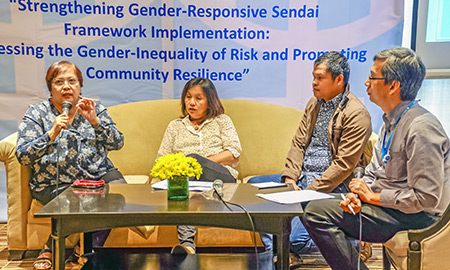
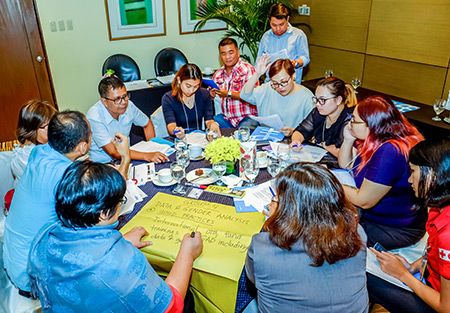
On the positive side, participants also testified to the important role that women have played as first responders in times of disasters or as leaders in building community resilience, and agreed that a Philippines GiR programme would boost efforts to tap women’s leadership as a key resource for effective DRRM. The role of Local Disaster Risk Reduction Management Officers (LDRRMOs) was also cited as critical in ensuring that plans and actions are gender-responsive. Private sector’s support and participation in addressing the gender inequality of risk also need to be tapped. Moving forward, participants agreed to report back to their agencies and organizations to advocate for strengthened gender mainstreaming in DRR. In the meantime, IFRC’s Sandra Romero and UN Women Philippines’ Jeannie Manipon committed to work closely with the OCD, the PCW, and other stakeholders in taking the next steps to further develop the Philippines’ GIR programme.